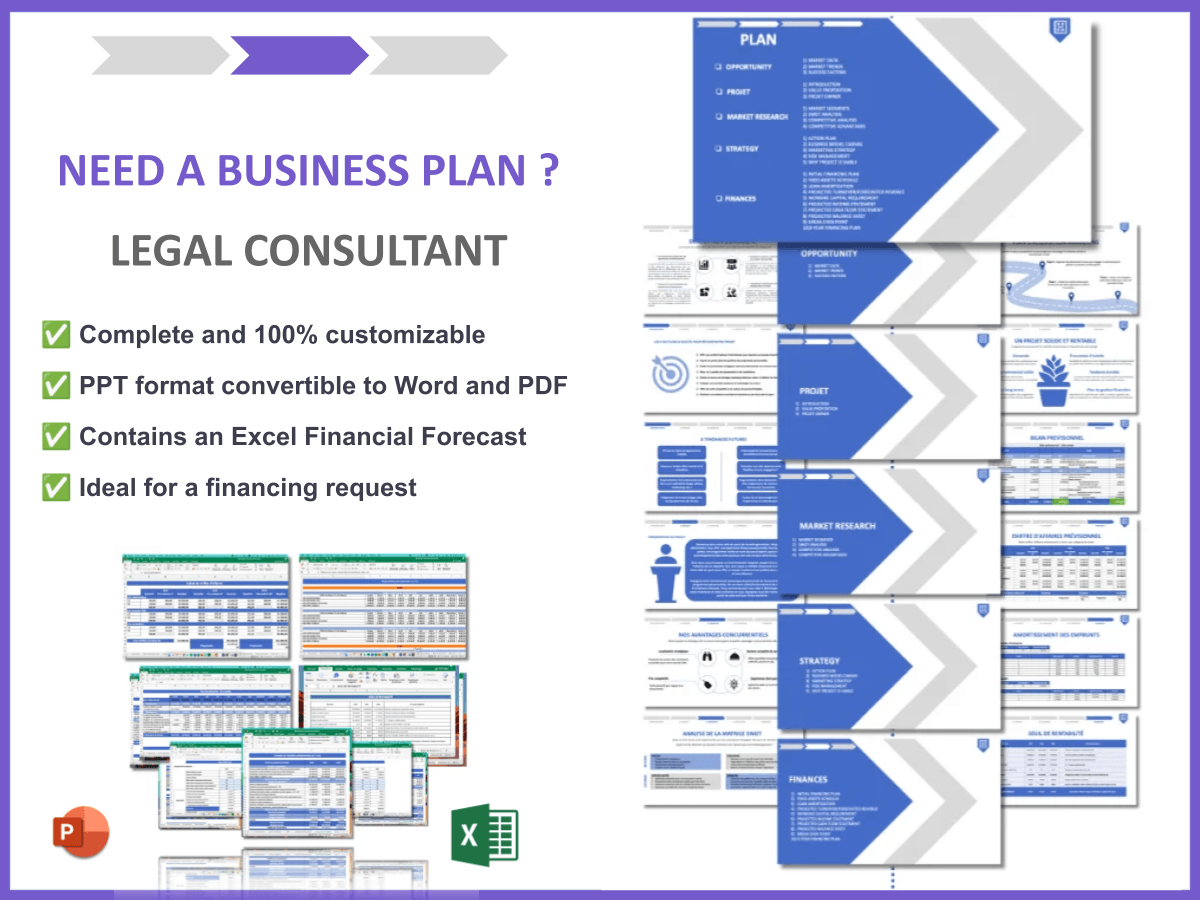Why Should You Have a SWOT Analysis for Legal Consultants?
Are you a legal consultant looking to elevate your practice? You’re not alone! Many consultants face the challenge of standing out in a crowded marketplace. A SWOT analysis can be a game-changer for you. It helps you identify your strengths, weaknesses, opportunities, and threats, which are crucial for strategizing your business effectively.
Did you know that over 70% of legal consultants who perform regular SWOT analyses report higher client satisfaction? This surprising statistic highlights the impact of strategic planning in the legal field. In this article, we will explore the ins and outs of conducting a SWOT analysis specifically for legal consultants.
Definition: A SWOT analysis is a strategic planning tool used to identify the internal and external factors that can affect the success of a business.
- Understand the purpose of a SWOT analysis.
- Learn how to write a SWOT analysis for legal consultants.
- Explore 10 practical examples.
- Identify strengths specific to legal consulting.
- Recognize common weaknesses in the industry.
- Discover opportunities available to legal consultants.
- Acknowledge potential threats in the legal field.
- Gain insights from real-world examples.
- Implement findings into your practice.
- Drive growth and client satisfaction.
How Do You Write a SWOT Analysis for Legal Consultants?
Creating a SWOT analysis involves a structured approach that can reveal significant insights. Here’s how you can get started:
Strengths
1. Expertise in Legal Knowledge: Your deep understanding of the law can be a major asset.
2. Established Reputation: A strong brand can attract clients and referrals.
3. Networking Opportunities: Connections with other legal professionals can lead to partnerships.
4. Client Relationship Management: Strong communication skills can foster long-term client relationships.
Weaknesses
1. Limited Marketing Skills: Many legal consultants struggle with promoting their services.
2. High Competition: The legal field is saturated with consultants, making it hard to stand out.
3. Resource Constraints: Small firms may lack the resources for comprehensive research.
4. Narrow Specialization: Focusing too much on a niche can limit client base.
Opportunities
1. Emerging Legal Technologies: Adopting new tech can streamline operations.
2. Growing Demand for Legal Services: More businesses require legal advice as they expand.
3. Remote Consulting Options: Virtual consultations can broaden your client reach.
4. Legal Education and Workshops: Offering training can position you as an expert.
Threats
1. Economic Downturns: Recessions can reduce clients’ willingness to spend on legal services.
2. Changing Regulations: New laws can create challenges for compliance.
3. Online Competition: Digital platforms offering legal advice can attract clients away.
4. Negative Online Reviews: Poor feedback can harm your reputation.
SWOT Example N°1 for Legal Consultant
This example illustrates how a mid-sized legal consulting firm can benefit from a SWOT analysis.
| SWOT | Analysis |
|---|---|
| Strengths | Strong local presence, specialized knowledge in corporate law. |
| Weaknesses | Limited online marketing strategy, high staff turnover. |
| Opportunities | Increasing demand for corporate compliance services. |
| Threats | New competitors entering the local market. |
- Strong community ties.
- Specialized in a growing field.
- Needs better online presence.
- Faces new competition.
- A SWOT analysis revealed that the firm’s strength in corporate law could be leveraged through targeted marketing strategies.
SWOT Example N°2 for Legal Consultant
Here’s a look at a startup legal consultancy and its SWOT analysis.
| SWOT | Analysis |
|---|---|
| Strengths | Innovative service offerings, flexible pricing. |
| Weaknesses | Lack of brand recognition, limited client base. |
| Opportunities | Potential for growth in tech startups. |
| Threats | Established firms with loyal clients. |
- Innovative approach to legal services.
- Needs to build a brand.
- Opportunities with tech startups.
- Competition from established firms.
- This analysis suggests that the startup could gain traction by focusing on tech startups that require legal guidance.
SWOT Example N°3 for Legal Consultant
Let’s examine a well-established firm and its SWOT analysis.
| SWOT | Analysis |
|---|---|
| Strengths | Extensive experience, large client portfolio. |
| Weaknesses | Slow to adopt new technologies. |
| Opportunities | Expansion into new markets, mergers. |
| Threats | Economic instability affecting clients. |
- Extensive experience in various legal fields.
- Needs to modernize practices.
- Can expand into new regions.
- Economic factors can impact client retention.
- The firm could improve by investing in technology to enhance client services.
SWOT Example N°4 for Legal Consultant
This example focuses on a family-run legal consultancy.
| SWOT | Analysis |
|---|---|
| Strengths | Personalized service, strong client loyalty. |
| Weaknesses | Limited resources for marketing. |
| Opportunities | Ability to expand services to new demographics. |
| Threats | Increasing competition from larger firms. |
- Personalized attention to clients.
- Needs more marketing resources.
- Can target new demographics.
- Faces pressure from larger competitors.
- Personal service can be a unique selling point in a competitive landscape.
SWOT Example N°5 for Legal Consultant
Here’s a look at a niche legal consultant specializing in environmental law.
| SWOT | Analysis |
|---|---|
| Strengths | Niche expertise, strong advocacy. |
| Weaknesses | Limited general legal knowledge. |
| Opportunities | Growing awareness of environmental issues. |
| Threats | Changes in environmental regulations. |
- Strong expertise in a niche area.
- Needs broader legal knowledge.
- Opportunities with rising environmental concerns.
- Regulatory changes can impact business.
- Focusing on advocacy can attract clients passionate about environmental issues.
SWOT Example N°6 for Legal Consultant
An analysis of a legal consultant focusing on family law.
| SWOT | Analysis |
|---|---|
| Strengths | Empathy and understanding of client issues. |
| Weaknesses | Emotional strain from cases. |
| Opportunities | Increasing demand for family mediation services. |
| Threats | Negative public perception of family law. |
- Strong client relationships.
- Needs support for emotional challenges.
- Can offer mediation as a service.
- Public perception can affect business.
- Empathy can be a powerful tool in attracting clients in family law.
SWOT Example N°7 for Legal Consultant
This example examines a legal consultant specializing in immigration law.
| SWOT | Analysis |
|---|---|
| Strengths | In-depth knowledge of immigration policies. |
| Weaknesses | High emotional toll from cases. |
| Opportunities | Increase in immigration cases. |
| Threats | Policy changes impacting immigration laws. |
- Expertise in a critical area of law.
- Needs emotional support systems.
- Opportunities with rising immigration cases.
- Policy changes can create instability.
- This consultant could benefit from community outreach to build a client base.
SWOT Example N°8 for Legal Consultant
Analyzing a consultant focused on corporate mergers.
| SWOT | Analysis |
|---|---|
| Strengths | Strong negotiation skills. |
| Weaknesses | Limited experience in small businesses. |
| Opportunities | Expansion into startup mergers. |
| Threats | Economic downturns affecting mergers. |
- Strong negotiation capabilities.
- Needs experience with smaller clients.
- Opportunities with the startup ecosystem.
- Economic factors can impact business.
- Leveraging negotiation skills can help secure favorable deals.
SWOT Example N°9 for Legal Consultant
Here’s a look at a consultant specializing in intellectual property law.
| SWOT | Analysis |
|---|---|
| Strengths | Specialized knowledge in IP law. |
| Weaknesses | Limited visibility in the market. |
| Opportunities | Increasing tech startups needing IP protection. |
| Threats | Changes in IP regulations. |
- Expertise in a growing area of law.
- Needs to enhance market presence.
- Opportunities with tech startups.
- Regulatory changes can pose risks.
- Building a strong online presence can help attract more clients.
SWOT Example N°10 for Legal Consultant
An analysis of a legal consultant focusing on contract law.
| SWOT | Analysis |
|---|---|
| Strengths | Detail-oriented approach. |
| Weaknesses | Limited client outreach. |
| Opportunities | Growing demand for contract review services. |
| Threats | Automation in contract management. |
- Detail-oriented, ensuring contract accuracy.
- Needs to improve outreach strategies.
- Opportunities with contract reviews.
- Automation can threaten traditional consulting roles.
- Emphasizing detail can attract clients needing thorough contract reviews.
Final Thoughts on Legal Consultant SWOT Analysis
In summary, conducting a SWOT analysis is vital for legal consultants aiming to enhance their practice. By identifying strengths, weaknesses, opportunities, and threats, you can strategically position yourself in a competitive landscape. Don’t underestimate the power of this tool—start your SWOT analysis today and unlock the potential of your consulting practice!
If you’re looking for a comprehensive approach to kick-start your journey as a legal consultant, consider exploring this business plan template designed specifically for legal consultants. It provides a structured framework that can guide you through the initial stages of your business.
Additionally, check out our articles on How to Set Up a Legal Consultant Business? and How to Formulate a Legal Consultant Marketing Plan? With Example. These resources will help you gain valuable insights into establishing and promoting your consulting practice.
Common Questions About SWOT Analysis for Legal Consultants
1. What is a SWOT analysis?
A SWOT analysis is a strategic tool that helps identify strengths, weaknesses, opportunities, and threats related to a business or project.
2. Why is SWOT analysis important for legal consultants?
It assists legal consultants in understanding their market position and developing effective strategies for growth and client satisfaction.
3. How often should I perform a SWOT analysis?
Conducting a SWOT analysis annually or whenever significant changes occur in your business or the legal market is beneficial.
4. Can I do a SWOT analysis alone?
Yes, but involving team members can provide diverse insights and a more comprehensive understanding of your practice.
5. What are some common strengths for legal consultants?
Common strengths include specialized knowledge, strong communication skills, and a solid reputation in the field.
6. What weaknesses should I look for in my SWOT analysis?
Weaknesses may include limited marketing strategies, high competition, and resource constraints.
7. How can I identify opportunities?
Look for trends in the legal market, such as emerging areas of law or increasing demand for certain services.
8. What threats should I be aware of?
Consider economic downturns, regulatory changes, and competition from online legal services.
9. How can I use my SWOT analysis results?
Implement strategies that leverage your strengths, address weaknesses, seize opportunities, and mitigate threats.
10. Is there a template for SWOT analysis?
Yes, many templates are available online to help structure your SWOT analysis effectively.







